Japan and I---Interview with a Preparatory Course Student, Inzhu Bakhetnur from Kazakhstan
外大生インタビュー

Tokyo University of Foreign Studies provides one year of preparatory education for Japanese government-sponsored international students who plan to enter Japanese national universities, and has been accepting liberal arts students since 2020. The goals of this course are for students to acquire sufficient Japanese language skills, which are essential for studying at a Japanese university, and to acquire basic academic skills in the humanities and social sciences field according to each major. Every year, approximately 60 international students from all over the world take this course to study subjects such as Japanese, basic humanities subjects, and introductory specialized subjects. Even students with no experience learning Japanese prior to coming to Japan complete the one-year course with sufficient academic skills, including Japanese, and go on to attend national universities in various regions around Japan.
I interviewed Inzhu Bakhetnur from Kazakhstan who is currently studying in this preparatory course. You will learn about her experiences studying at TUFS from her perspective as an international student, and what led her to study in Japan.
Study at TUFS
―――Why did you decide to study in Japan?
For as long as I can remember, I have been watching anime regularly. I used to watch a lot of Naruto, mainly because my older sister liked it. As I continued to watch anime, by around the age of 15, I gradually began to be able to understand some Japanese, even without subtitles. I had always liked Japan and wanted to study Japanese, but my mother said, ‘You are talented, so why don't you start studying Japanese properly?’, which gave me the final push to start learning Japanese. After that, I went to a Japanese language school in Kazakhstan for a year, but halfway through, the coronavirus pandemic started, so instead of going to school, I bought Japanese books and studied at home.
I realized that the language structure of Japanese is closer to Kazakh than to English or even Russian which is taught at school in Kazakhstan. This made me develop an even greater affinity for the Japanese language and made me realize that I wanted to study abroad in Japan.
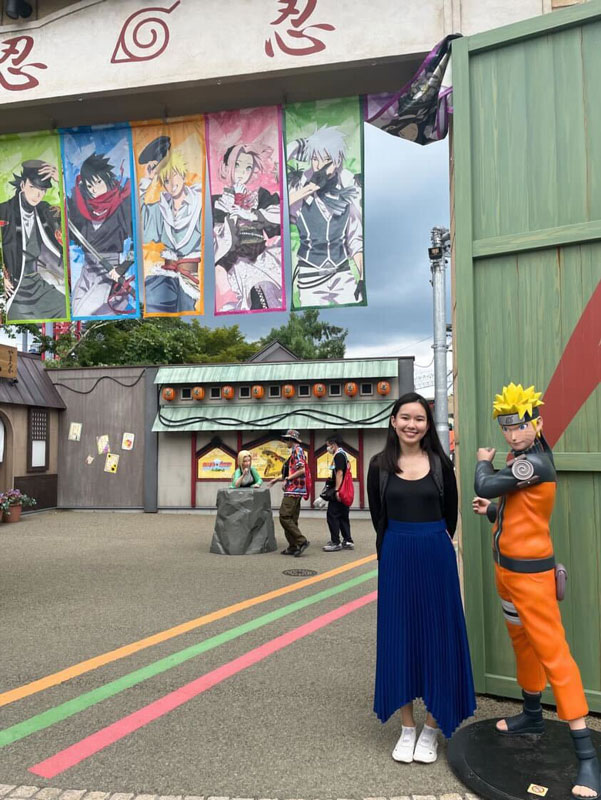
―――What is the most difficult thing about studying Japanese?
I was born in China and lived there until I was 8 years old, so I find it difficult to learn the differences between Chinese and Japanese. There are times when the readings of Japanese kanji and Chinese kanji are very different, and sometimes the meaning of a word in Chinese and the meaning of that word in Japanese are different, so it is easy for me to confuse them. For example, the Japanese word for ‘study’ in Chinese means to do something reluctantly, so I was surprised when I first learned how this word was used in Japanese. I also tend to mix up simplified Chinese characters and Japanese kanji, so I have a hard time memorizing them.
―――What are you studying at TUFS?
I am currently taking a one-year preparatory course for entering a Japanese university at the TUFS Japanese Language Center for International Students as an undergraduate student. During the first semester, I mainly studied Japanese, sociocultural theory, and multicultural communication. I also took elective lectures on statistics and ancient Japanese literature. Japanese classes are usually in the first and second period every morning from Monday to Friday, and in the afternoon, I also take lectures on sociocultural theory and classical literature in addition to other Japanese classes. Japanese lectures are divided into listening, writing, and presentation classes. Since the class is small with only 8 students, each student is taught Japanese very thoroughly. The afternoon socio-cultural theory class is very interesting as it analyzes Japanese society from multiple angles. Among the many different subjects, I particularly like the ancient Japanese literature class.
I passed the N1 level of the Japanese Language Proficiency Test, but when it comes to ancient Japanese, I often can't understand the meaning at all (laughs). However, I find the ancient texts really interesting because I can learn about the unique culture of Japan, which used few kanji at the time, and the various cultural circumstances and historical backgrounds of the time. In the ancient Japanese literature lectures, we mainly study waka poetry. In this lecture, the teacher first explains important topics such as the meanings of the words that appear in today's waka poem, and then translates each line of the waka poem one by one. In this class, I not only learn about translation, but also about the culture of the time. For example, in the Heian period, if a man visited a woman for three days, it was considered a marriage. I didn’t know this, so it was very rewarding to learn.

Life in Tokyo
―――What do you usually eat?
When I was in Kazakhstan, the women in my family often cooked dishes similar to Japanese udon noodles, but since I came to Japan, even though I wanted to try to cook for myself as much as possible by myself, I often eat at the school cafeteria (laughs). I especially go there to eat the 100 yen breakfast. However, I have a hard time trying to eat a well-balanced meal because the cafeteria menu has a lot of fried foods. After I eat lunch, I don't usually feel hungry at night, but when I do get hungry, I eat whatever vegetables I have at home or whatever is left in the fridge. The first thing I like about Japanese food is Japanese fish dishes. I especially like sushi. I think each fish has a unique texture and is very delicious. Other than that, it might be surprising, but I like oyakodon (chicken and egg over rice dish). I like the unique name of the dish, ‘Oyakodon (mother and child)’ and I also love it because it's a very filling meal.
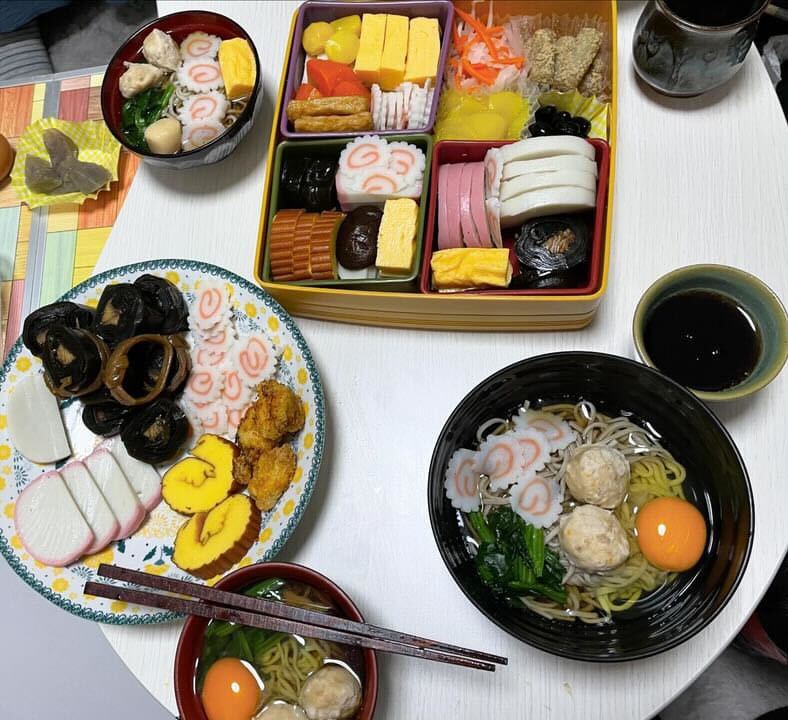
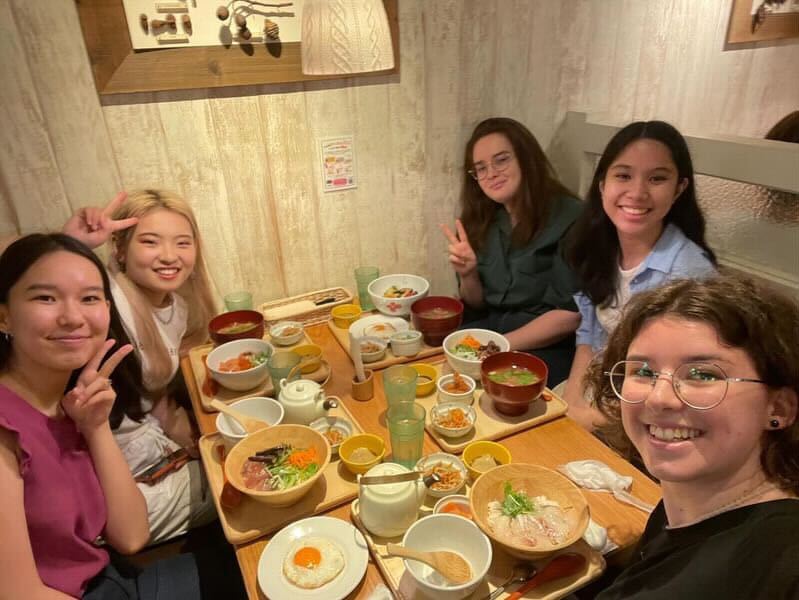
―――Do you have a part-time job? Are you involved in any club activities?
I am part of the ‘Etoile’ circle which is the classical ballet club of Tokyo University of Foreign Studies.
Ever since I came to Japan, I've wanted to join a club, so I went to various trial sessions for different clubs with my friends. At first, I was also interested in the kyudo archery club, but since I am an international student studying for undergraduate studies, I also needed to devote time to studying for entrance exams, so I gave up on joining. That’s when I found out about Etoile. I have always loved classical music, and even went to see ballet performances in my home country. I also learned traditional dances in Kazakhstan, so I decided to go to Etoile's trial session. I found that it was a very nice club, and they kindly taught me, even as an international student. In addition, I was impressed to see everyone practicing ballet very seriously, even though there was no teacher. In my country, practice never progresses without a teacher (laughs), so it's really amazing to be able to come up with our own choreography and practice independently. That's why I decided to join Etoile. Right now, I'm practicing hard as a beginner.
―――What do you usually do during your free time?
When I first started studying here, I had a hard time adjusting to my new lifestyle, so instead of going out much, I just went for walks around TUFS and Fuchu. After getting more used to life in Japan, I really enjoy getting on the train and going out with my friends on my days off. Kichijoji, Koenji, Shinjuku, Shibuya, etc... each area has a different atmosphere and is interesting in its own way.
Recently, I visited Kamakura with my friends. In Kamakura, I tried wearing a yukata for the first time and went to see the famous Great Buddha statue. Unlike the area around TUFS, it was close to the sea and I could feel the history and culture of ancient Japan. I also went to Mt. Takao as part of an assignment. There are many temples there, and it was fun to experience Japanese culture. However, since I climbed to the top of the mountain on foot, the paved path was a little hard for me to walk on (laughs).
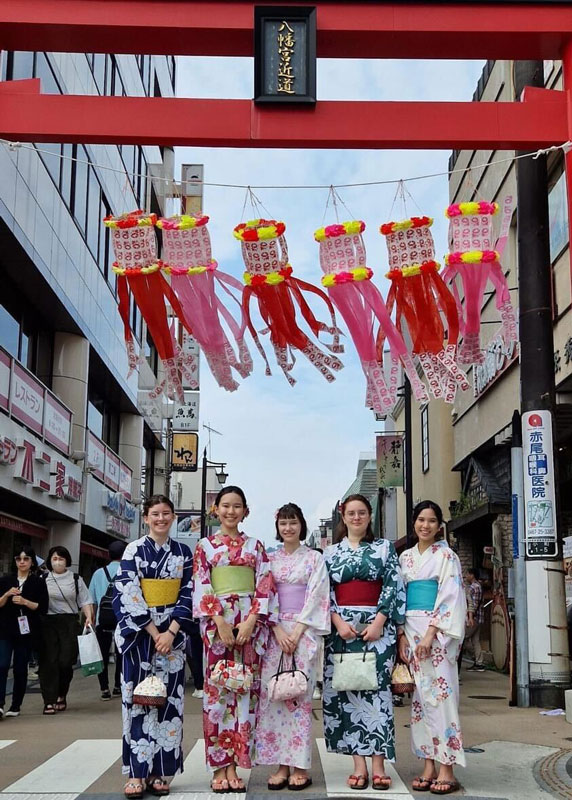
Me and Japan - Changed habits
―――What souvenirs do you plan to take back to your country for your friends and family?
There are so many things I want to buy so I can't decide. I almost wish my family would come to Japan and help me transport everything back (laughs). I would like to bring home some Japanese silk fabrics because I like the texture and Japanese-style colors. I would also like to take some Japanese tableware home with me. In my home country, everything is served on one plate, so I would like to bring back some Japanese tableware in a variety of shapes and colors. As for food, I would like to take some matcha home with me because matcha from Japan is especially delicious compared to other countries. I absolutely love the sour taste of umeboshi (pickled plums), so I will definitely bring some home with me.

―――Have any of your habits changed since coming to Japan?
It gets darker earlier in Japan than in Kazakhstan, so I have started to go to sleep earlier. Also, because the sun rises early, I wake up at around 5:00 or 6:00, and as a result, my habits have changed to going to bed early and getting up early. Additionally, since I can see Mt. Fuji from my dormitory's balcony in the morning, it has become part of my daily routine to open the curtains as soon as I wake up, go out onto the balcony, and look at Mt. Fuji, which makes me really look forward to waking up every morning.
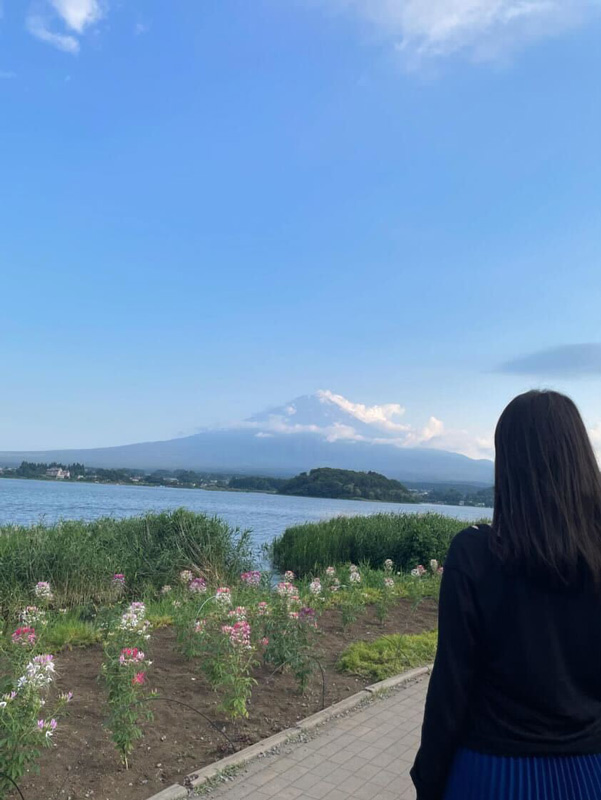
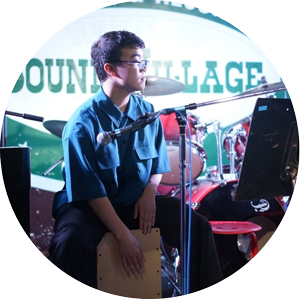
After the interview
I learned a lot about the unexpected similarities between Kazakhstan and Japan, which I never knew, as well as the appeal of TUFS. In particular, Inzhu talked about the joy and difficulties of studying at our university as an undergraduate student, which is a little different from other international students, and what her career path will be after completing the preparatory Japanese education course. I learned a lot about the initiatives of our university that I don't see very often as a Japanese student. Thank you very much, Inzhu, for letting me interview you!
Yusei HASEGAWA, 2nd year students, School of Language and Culture Studies
本記事は本学の「学生取材班」により準備されましたが、文責は、東京外国語大学にあります。ご意見は、広報マネジメント?オフィス(koho@tufs.ac.jp)にお寄せください。

